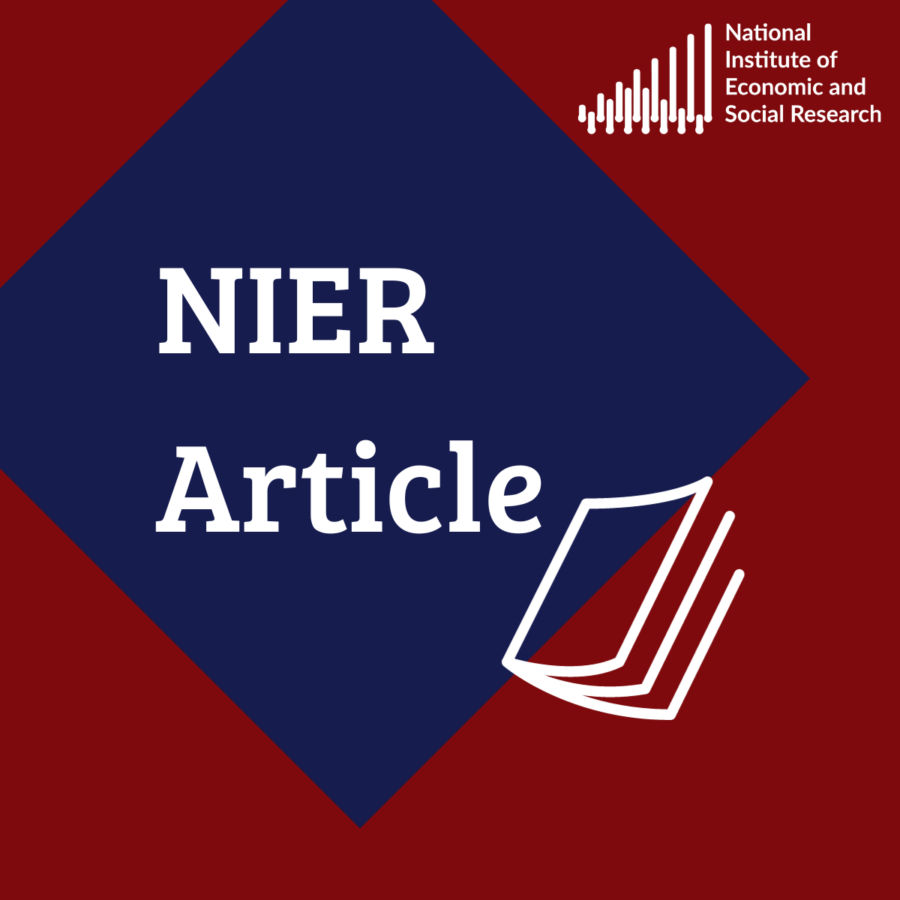The new monetary regime: Introduction
 Pub. Date
Pub. Date
 Pub. Type
Pub. Type

Perhaps the most striking feature of macroeconomic policy of the past twenty or thirty years has been the emergence of a consensus that monetary policy should be delegated to an independent authority. The world has moved from a situation in the 1960s and 1970s where there were very few independent central banks Ð in Europe the main example was the Bundesbank of course Ð to one now where independence is almost standard. Indeed with the foundation of the European Central Bank and the eurosystem the Bundesbank model has effectively come to dominate European monetary policy. The collection of papers in this issue of the Review consider this move in policy setting from a number of diverse perspectives including the move to inflation targeting as well as central bank independence. They assess the effectiveness of this move, describing how an independent monetary authority actually does operate, as well as how it might utilise information more effectively.
Ottmar Issing's article reviews the empirical evidence and theoretical arguments for central bank independence, including political economy considerations. It concludes that the optimal institutional framework to keep inflation lastingly under control is based on granting independence to central banks and establishing price stability as the overriding objective of monetary policy. This framework - combined with appropriate appointment procedures, a sound governance structure and a welldefined monetary policy strategy of the central bank - would ensure price stability. Finally, public support for central bank independence also matters. In this respect, the central bank has a special role in nurturing a stability-oriented culture in society.
Mike Wickens' article assesses the new monetary policy regime introduced in the UK in 1997. It discusses the original remit given to the Bank of England, how it has been interpreted by the Bank and the conduct of monetary policy by the Monetary Policy Committee (MPC) subsequently. The article draws heavily on Wickens' experience as Specialist Adviser to the House of Lords Select Committee on Economic Affairs over this whole period. He concludes that the MPC has been very successful in fulfilling its remit, but that a puzzle remains at the heart of the policy over whether the way inflation targeting has worked in practice is consistent with how it is said to work in theory.
Patrick Minford argues that monetary policy should be guided by macroeconomic models with limited nominal rigidity; 'New Classical' or even for some issues just plain Classical (i.e. with no nominal rigidity at all) models are perfectly adequate for understanding various aspects of the economy that have previously led economists to believe in a high degree of nominal rigidity. On UK data these models account for the facts of inflation persistence and exchange rate 'overshooting'; their impulse responses are in line with the data; and a typical example, the Liverpool Model, is marginally accepted in its entirety by the data since 1979. Such models suggest that no increased macro instability would result from taking the rigours of monetary policy one stage further from inflation targeting and ensuring that the price level itself is returned to its long-run preset target path - so that the value of money over long periods of time would be utterly predictable.
Stephen G. Cecchetti examines how at the dawn of the 21st century, property and equity ownership are spread more broadly across the population than they once were. One consequence of this is that asset price booms and crashes now have a direct impact on general welfare. The fact that bubbles distort nearly all economic decisions gives policymakers a stronger interest in asset price stability. In this article, Ceccheti examines the theoretical and empirical case for the existence of equity and property bubbles, and then summarises the economic distortions that they create. The evidence suggests increasing our attention to property prices. He goes on to discuss the possible policy responses, including examining the consequences of changing the way in which housing is included in standard aggregate price measures.
S.G. Hall and S.G.B Henry's article argues that an independent central bank is not in itself sufficient to ensure the long-term success and stability of the economy. While there are strong academic arguments for making the central bank independent, these arguments are often developed in a closed economy setting. Where trade is important and the economy is open, making the central bank independent can lead to a strategic interaction between the bank and the fiscal authorities which can produce serious imbalances in the economy over time. In particular, the analysis below suggests that there could be excess demand in the non tradable sector combined with a recession in the sectors of the economy open to trade. Our contention is that the UK economy exhibits all the signs that we would expect to see if this argument were relevant.
This set of papers gives a broad assessment of some of the issues that have ignited debate about the new arrangements for monetary policy which have been adopted around the world. There has been a widespread approval of the move to central bank independence, and the contributors here share in this view. But the present papers illustrate some of the issues of controversy and debate which surround the new arrangements, including the precise methods of operating an independent central bank (what should it target, what information should it use, how should it use this information, what precisely is the transmission mechanism) and issues of the overall policy regime in which the independent central bank operates, especially how fiscal policy should be set and monitored. While the move to the new monetary regime is seen as a major step forward in policymaking, it is clear that it is not a simple panacea which solves the problems of macro policy making. What this collection shows is some of the areas where further improvement in the regime is possible, ranging from questions about the theory underlying the case for independence to practical issues of the terms of the inflation remit and the appointment of members to the MPC.




